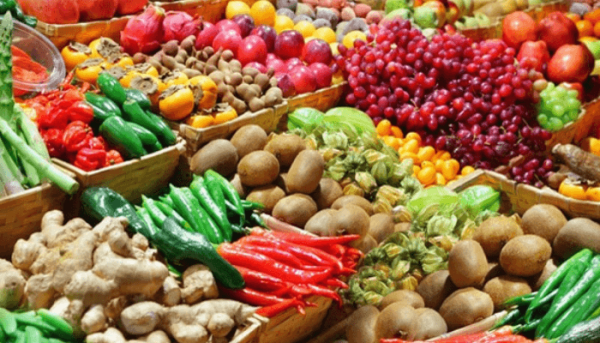The Senate has called on the Federal Government to urgently initiate measures to address the impending food insecurity in Nigeria. Additionally, the government has been urged to outline the measures already put in place to combat the situation and communicate these to the public.
The Senate’s resolution followed the adoption of a motion on the urgent need to address food insecurity and market exploitation of consumables in Nigeria, presented during a plenary session. The motion was sponsored by Senators Sunday Karimi (APC-Kogi) and Ali Ndume (APC-Borno).
Leading the debate, Senator Karimi highlighted that in recent months, the prices of goods and household consumables in Nigeria have surged to an all-time high. This escalation has led to a high rate of inflation, weakened purchasing power, and adversely affected the living conditions of a vast majority of Nigerians.
Karimi cited the latest data from the National Bureau of Statistics (NBS), which showed that food inflation in the country skyrocketed to 40.66 percent on a year-on-year basis, a significant increase from the 24.82 percent recorded in May 2023. He noted that the current market prices of food items such as beans, maize, rice paddy, yam, tomatoes, and onions, which initially rose by about 40 percent following the removal of petroleum subsidies, have now increased by between 100 percent and 300 percent without any attributable reason for the price hikes.
ALSO READ Food insecurity: FG, IITA others partner on innovative agricultural practices
Karimi identified several contributing factors to the increase in food prices, including insecurity in food-producing regions, poor road conditions, increased transportation costs, and the depreciation of the Naira. However, he emphasized that a significant portion of the price increases could be attributed to the greed of merchants, traders, and retailers seeking to make supernormal profits.
He remarked, “There is a general attitude of getting rich quickly or by any means necessary, leading many Nigerians to exploit one another to make abnormal profits. This attitude has been justified by the perception that many political, technical, and corporate elites have helped themselves to public funds without repercussions. Consequently, traders have resorted to price overcharging to maximize profits.”
Karimi also pointed out reports that farming communities in border regions preferred to sell their food items abroad to neighboring countries, exacerbating local food insecurity. He expressed concern that government efforts to curb the consistent increase in food inflation had not yet yielded the desired results.
He stressed the need for more pragmatic approaches to addressing food insecurity, including resolving herder-farmer crises, kidnapping for ransom, and terrorism. He advocated for the development of a viable national commodity board to regulate the price of grains and the elimination of artificial contributions to food and commodity inflation in Nigeria.
Senator Ali Ndume (APC-Borno), who seconded the motion, added that recent reports indicated Nigeria might face severe food insecurity. He noted that many farmers could no longer access their farms due to insecurity, leading to widespread hunger. Ndume emphasized the necessity for lawmakers to take urgent steps to address the high prices of food as representatives of the people.
Senator Ahmed Lawan (APC-Yobe) lamented that many Nigerians now struggle to have just one meal a day, pointing out that the country’s silos are empty. He urged the federal government to make frantic efforts to import food and called on the National Assembly to engage the executive branch in taking immediate steps to avert the looming food insecurity.
Senator Ahmed Wadada (SDP-Nasarawa) commended the federal government for its recent decision to relax import duties and taxes on food items to be imported into the country. He emphasized the seriousness of the issue and urged lawmakers to contribute to food production at their various levels.
Senate President Godswill Akpabio highlighted that food insecurity issues have worsened due to farmers being denied access to their farmlands by bandits. He noted that the abandonment of farms due to insecurity has been a longstanding issue and urged the government to encourage farming activities, especially during this period.
Akpabio informed the Senate that the federal government had provided 60 trucks of fertilizer to each state, with Senators and House of Representatives members set to receive between one and two trucks for distribution to their constituencies. This initiative aims to ensure increased food production by Nigerians involved in agriculture. Akpabio concluded by commending the federal government for considering tax and duty exemptions for imported food items and emphasized the need to improve farming activities.


